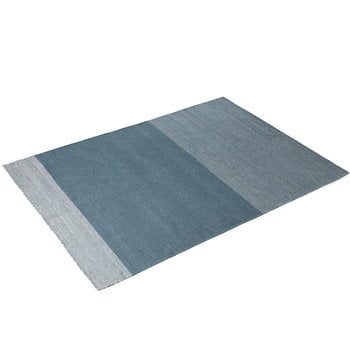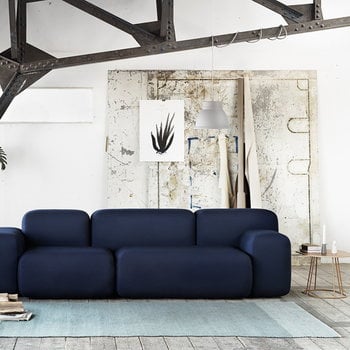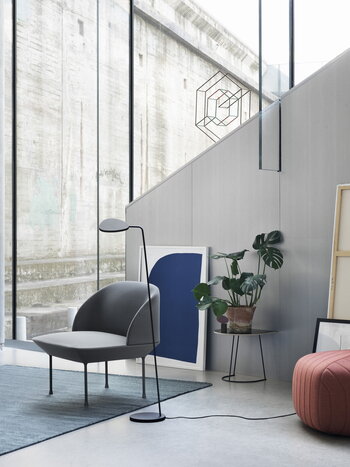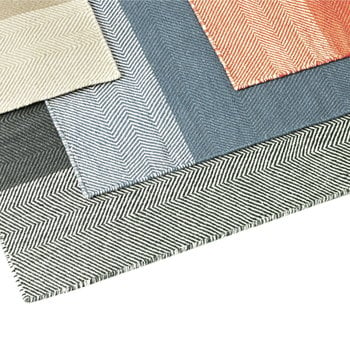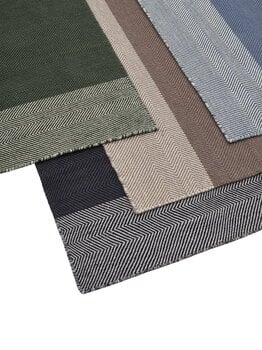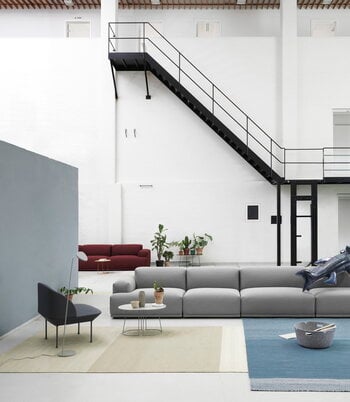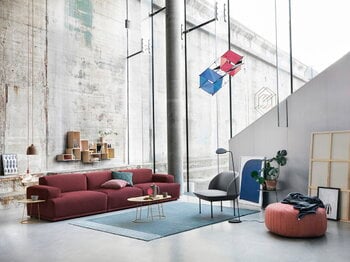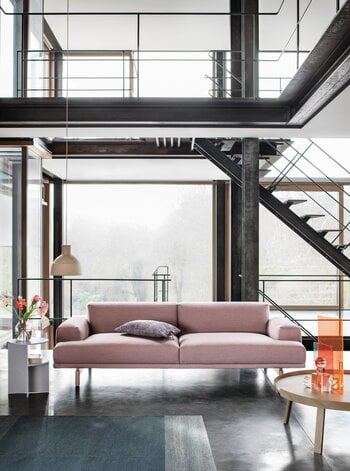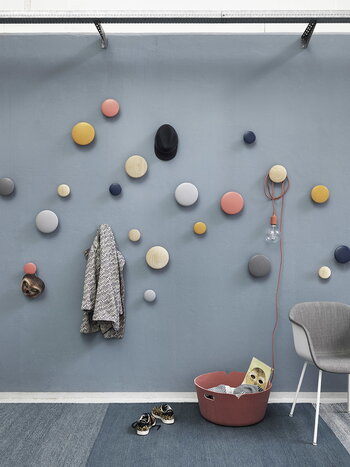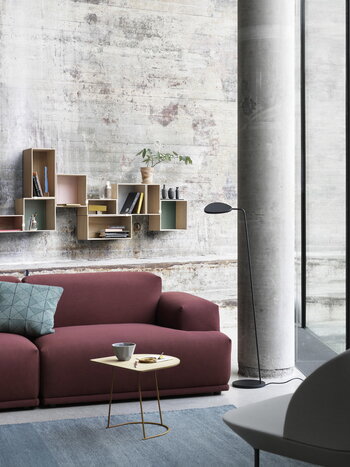The Varjo rug by Muuto was designed by Tina Ratzer. Varjo is hand-woven from New Zealand lambswool, and the lovely tone-in-tone colours and subtle patterns make it suitable for all types of interiors and styles, for both homes as well as public spaces.
The designer Tina Ratzer says about the Varjo collection: "The idea was to create a geometric rug with multiple layers and dimensions. I wanted to give the first layer an easy understandable language and balanced colour scheme. When you go one layer deeper a dynamic herringbone pattern arises and brings a new dimension and a surprising twist to the rug. Varjo is Finnish for shadow, which translates to the shadow effects that are created between the layers, as the darkest colour block almost rises above the others, creating a three-dimensional expression.”
